private schools in india: Exploring the Ethics and Impacts of Education as a Commodity.
Private schools have become increasingly popular in India over the past few years, as more and more parents are looking for alternative options for their children's education. While private schools offer many advantages, they also come with some disadvantages. In this article, we will discuss both the advantages and disadvantages of private schools in India.
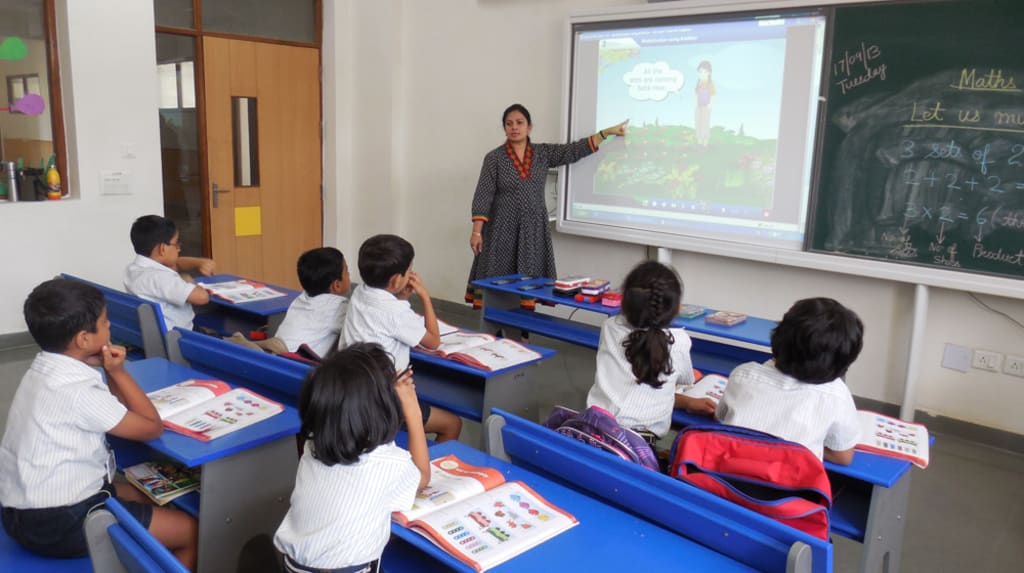
Benefit:
Quality Education: Private schools often provide higher quality education than government schools. They have better infrastructure, resources and teachers who are well trained and qualified in their respective fields.
Smaller Class Sizes: Private schools tend to have smaller class sizes, which allows for more individualized attention to each student. This can lead to better academic performance and personal development.
More extra-curricular activities: Private schools offer a wide range of extracurricular activities such as sports, music, arts and drama, which are not always available in government schools. These activities provide opportunities for students to develop new skills and explore their interests.
Parental Involvement: Private schools encourage parental involvement in the education of their children. They provide regular updates on academic progress and involve parents in school events and activities.
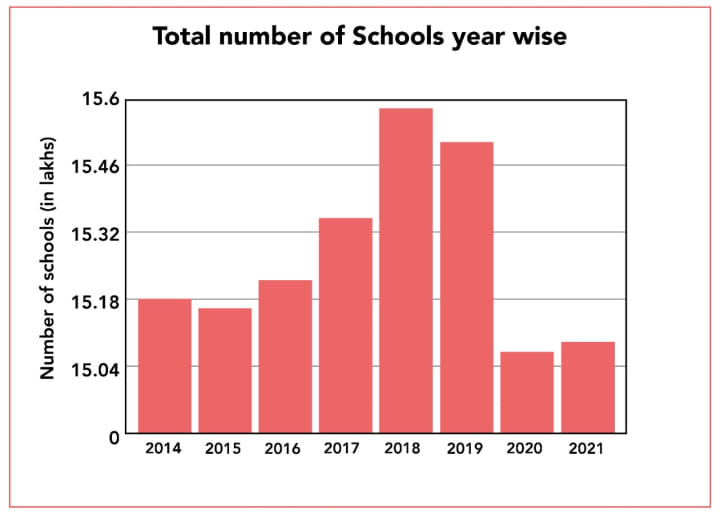
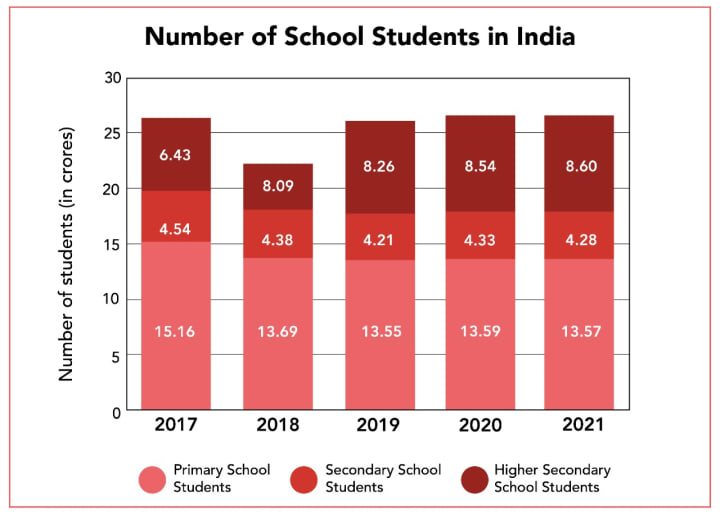
Harm:
Cost: Private schools can be expensive, and not all families can afford the high fees. This limits access to quality education for many children, especially those from low-income families.
Social divide: Private schools tend to attract students from privileged backgrounds, which can create a social divide between them and students from government schools. This can result in a lack of diversity and limited exposure to different cultures and viewpoints.
Lack of accountability: Private schools are not always accountable to government regulations, which can lead to a lack of transparency and quality control. This can result in schools with poor infrastructure or insufficient resources.
Pressure to perform: Private schools are often highly competitive, and there is a lot of pressure on students to perform well academically. This can lead to stress and anxiety, which can have long-term negative effects on mental health.
Another issue with private schools is their potential for teacher turnover. Private schools often pay higher salaries than public schools, which can attract talented teachers. However, private schools are also subject to market pressures and may be forced to cut costs if they are not profitable. This can lead to job insecurity and high turnover rates for teachers, which can be disruptive to students.
Despite these challenges, private schools remain a popular option for many families in India. Some argue that private schools provide a necessary alternative to government schools, which are often overcrowded and under-resourced. Others believe that private schools provide a more personalized education that can better meet the needs of individual students.
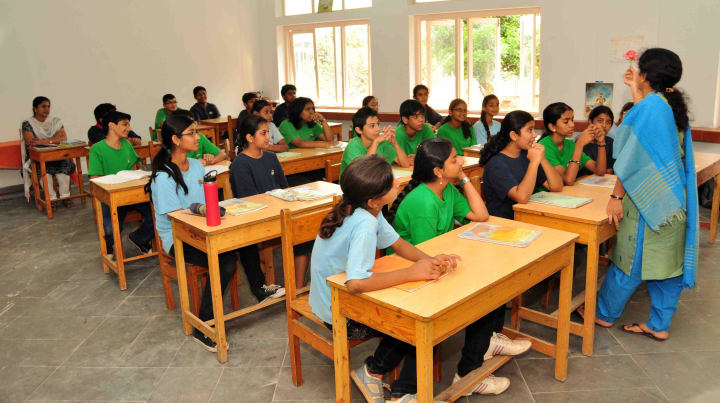
In recent years, there has been a growing trend towards low-cost private schools in India that aim to provide quality education to children from low-income families. These schools often charge much less than traditional private schools and can be found in both urban and rural areas.
One potential advantage of low-cost private schools is their ability to provide a quality education at a fraction of the cost of traditional private schools. This can make them an attractive option for families who want a high quality education for their children but cannot afford the high fees of traditional private schools. In addition, low-cost private schools often offer a range of extracurricular activities and support services, which can further enhance the education experience for students.
Another advantage of low-cost private schools is their ability to foster innovation and competition in the education sector. By offering a viable alternative to government schools and traditional private schools, low-cost private schools can inspire all schools to improve their quality and standards. This can ultimately benefit students by providing them with high quality education that better meets their needs.
However, even low-cost private schools face many challenges. A major issue is the lack of regulation and oversight, which can lead to quality concerns and the potential exploitation of students and faculty. Furthermore, low-cost private schools often rely on untrained or unqualified teachers, which can negatively impact the quality of education provided.
Another challenge is the potential for elitism and exclusion. While low-cost private schools are intended to provide education to low-income families, they may still be unaffordable for the poorest families, perpetuating socioeconomic disparities in education. In addition, low-cost private schools may not provide adequate support for students with disabilities or other special needs.
Apart from the challenges mentioned above, low cost private Private schools also face issues of funding and sustainability. These schools often struggle to raise enough money to maintain their facilities and pay their teachers. As a result, they may be forced to cut quality, which can have a negative impact on the education provided.
Furthermore, the sustainability of low-cost private schools can be uncertain. These schools often rely on donations or grants, which may be inconsistent or short-lived. In addition, they may struggle to compete with larger, more established schools with more resources and support.
Despite these challenges, many low-cost private schools in India have successfully provided quality education to students from low-income families. They have been able to do this by prioritizing education and investing in teacher training and development. Some schools have also been able to secure long-term funding through partnerships with non-profit organizations or through innovative financing models.
Overall, low-cost private schools in India provide an important alternative to traditional education options, especially for families who cannot afford the high fees of private schools or who are dissatisfied with the quality of government schools. While there are challenges that need to be addressed, these schools have the potential to innovate and improve education outcomes for students from all backgrounds.
private school scams
While private schools in India can provide affordable and quality education to students from low-income families, there is also a dark side to the private school system that is often overlooked. There have also been cases of private school scams where parents have been duped into paying for substandard or non-existent education.
A common scam involves private schools that advertise themselves as English medium schools, promising to provide high quality education in English. However, in reality, these schools often lack the infrastructure, resources and qualified teachers to provide such education. In some cases, schools may use Hindi or other regional languages as the medium of instruction, despite promoting themselves as English medium schools.
Another scam involves private schools that promise admission in prestigious universities or colleges, or claim to have tie-ups with such institutions. These schools often charge exorbitant fees and make false promises to parents, taking advantage of their aspirations for their children. In fact, these schools may not have any affiliation or tie-up with any reputed institute, and may not even provide adequate education to prepare the students for higher studies.
Some private schools may also engage in unethical practices such as withholding report cards or certificates until all fees have been paid, or charging hidden fees for extracurricular activities or materials. These practices can put undue financial strain on parents and prevent students from getting the education they deserve.
To protect themselves from private school scams, parents should research schools thoroughly before enrolling their children. They should check the school's accreditation and affiliation, and talk to other parents or students attending the school. They should also be wary of schools that make unrealistic promises or charge exorbitant fees, and ask them to analyze all the fees and expenses.
Another problem with private schools is the lack of regulation. While private schools are required to register with the local education department, there is often little oversight over the quality of the education they provide. This has created a situation where some private schools provide substandard education with unqualified teachers and inadequate infrastructure.
In some cases, private schools also discriminate against certain groups of students, such as those from marginalized communities or those with disabilities. They may refuse to admit these students or fail to provide necessary accommodations and supports.
Another issue with private schools is the pressure on students to perform. Private schools often have a culture of competition, where students are pushed to excel academically at the expense of their mental and physical health. This can lead to a situation where students suffer from anxiety, stress and burnout.
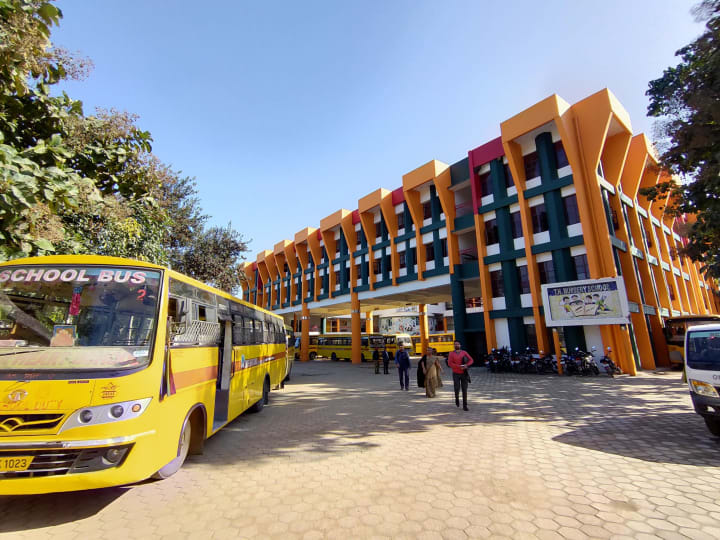
Finally, there is also the issue of corruption in the private school system. Some private schools engage in unethical practices such as bribing government officials, providing false information to parents, and inflating grades to make their students appear more successful.
PYQ
Q.1 How many schools in India are private?
According to the latest data from the Unified District Information System for Education (UDISE), which covers the academic year 2019-20, there were around 25.5 lakh (2.55 million) schools in India, out of which about 51% were government schools, and the remaining 49% were private schools. However, private schools tend to be concentrated in urban areas, while government schools are more prevalent in rural areas.
Q.2 Who controls private schools in India?
Private schools in India are regulated by the respective state education departments or boards in which they are located. Private schools in India need to obtain recognition from the government or state education board to operate legally. They are also required to follow the rules and regulations set by the respective education department or board, including academic standards, infrastructure, teacher qualifications, and fees. In addition, private schools in India may also be subject to oversight from various education-related bodies, such as the Central Board of Secondary Education (CBSE) or the Council for the Indian School Certificate Examinations (CISCE).
Q.3 What are the best private schools in India?
It is difficult to provide a definitive answer to this question as the definition of "best" can vary depending on various factors such as academic performance, extracurricular activities, infrastructure, fees, and location. However, here are some of the top private schools in India that are known for their academic excellence:
- The Doon School, Dehradun
- Mayo College Girls' School, Ajmer
- Cathedral and John Connon School, Mumbai
- The Shri Ram School, Delhi-NCR
- Modern School, Delhi
- Welham Girls' School, Dehradun
- Scindia School, Gwalior
- Bishop Cotton School, Shimla
- Sanskriti School, Delhi-NCR
- La Martiniere for Girls, Kolkata
It is important to note that there are many other private schools in India that are also providing quality education to their students.
About the Creator
Information Loop
I Will Providing Various Type Of Knowledge About All Topic




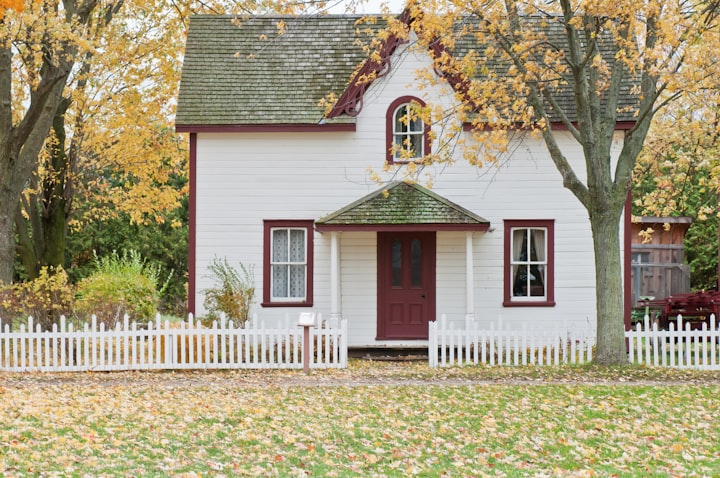

Comments
There are no comments for this story
Be the first to respond and start the conversation.